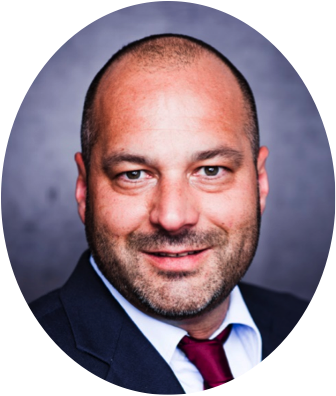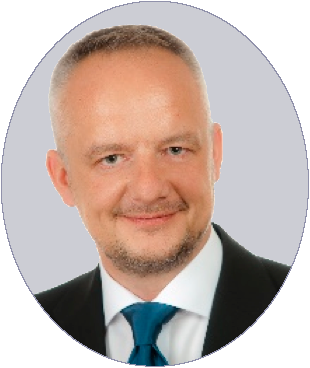Patent Strategies for IoT-Based Business Models: A SME Perspective
Digitalization is a game-changer in each and every industry. Sooner or later the business eco-systems underly a digital transformation. This tendency has strong consequences for IP- and especially patent strategies for affected enterprises. In this LES Nouvelles paper by Wurzer/Grünewald/Fischer/Karl the authors explain from their experience of real cases from the European industry and some methodical approaches how to manage and execute IP strategies within the realm of industry 4.0.
The phenomena subsumed under the keywords of “fourth industrial revolution” and “Internet of Things” (IoT) is transforming the industrial landscape. With business models in the B2C and B2B segments adapting to these developments, the role of IP—and in particular that of patents—as a competitive instrument is evolving, too. However, especially small and medium-sized companies (SME) often underestimate this role. Academics and practitioners have jointly developed proven methods and tools to effectively protect digital business models by means of IP under these new framework conditions.
Summary of this paper:
- The changes subsumed under the term Internet of Things are driven by a sustainable transformation through digital technologies.
- This transformation not only affects customer requirements and customer relationships, products and value propositions, but also established value creation structures, competitive situations and business models, which are changing at a rapid pace.
- As a consequence of these developments, the role of IP—and especially that of patents—as a competitive instrument in IoT business models is changing, too.
- The IoT layer model shows a basic pattern of technological levels IoT business models are composed of.
- The SAILS method is a tried and tested practical aid for describing the necessary exclusivities in order to identify the required proprietary IP positions in future solution spaces for a company’s business models from an early stage.
- Targeted IP positions can be designed with the help of methods from industrial design and design thinking in combination with synthetic inventing
Authors:
 Prof. Dr. Alexander Wurzer
Prof. Dr. Alexander Wurzer
Dr. Wurzer is Adjunct Professor for IP Management at the Center for International Intellectual Property Studies (Centre d’Etudes Internationales de la Propriété Industrielle, CEIPI) at the University of Strasbourg, where he has been Director of Studies for the Master’s degree in Intellectual Property Law and Management (MIPLM) since 2007. Prof. Dr. Wurzer is Director of the Steinbeis Transfer Institute for Intellectual Property Management at Steinbeis University Berlin. He is Managing Partner at WURZER & KOLLEGEN GmbH, a consulting firm specializing in strategic IP management. Prof. Dr. Wurzer is Chairman of DIN committees DIN 77006 for quality in IP management and DIN 77100 for patent valuation. He is a member of the Board of Directors of “Deutsches Institut für Erfindungswesen e.V.” (D.I.E.), Spokesman of the Board of Trustees awarding the Diesel Medal, and Fellow at the Alta Scuola Politecnica at Milan/Turin Polytechnic. He was also a jury member for the 2018 German Innovation Award of the German Design Council and is a member of the group of experts of the European Commission.
 Theo Grünewald
Theo Grünewald
He is senior consultant at WURZER & KOLLEGEN GmbH and a research fellow at the Steinbeis Transfer Institute for Intellectual Property Management at Steinbeis University Berlin. He is a lecturer at the Master’s degree course in Intellectual Property Law and Management (MIPLM) at the Center for International Intellectual Property Studies at the University of Strasbourg. Mr. Grünewald has authored numerous publications on IP strategy development, IP management, and IP valuation and is also a member of the DIN committees DIN 77006 for quality in IP management and DIN 77100 for patent valuation.
 Wolfgang Fischer
Wolfgang Fischer
Wolfgang Fischer is a Senior Consultant at WURZER & KOLLEGEN, Munich. His primary consulting topics are focussed on the identification and definition of strategic relevant IP (IP-Design) and implementation of complementary organizational IP-structures and processes (DIN 77006 for quality in IP-management). Wolfgang Fischer is also an academic freelancer of the Steinbeis Transfer Institute for Intellectual Property Management at Steinbeis University Berlin and author of numerous IP-related publications. Wolfgang Fischer holds a university diploma in Patent Engineering.
 Axel Karl
Axel Karl
Axel Karl is German Patent Attorney and founder of the Munich based Law Firm X-IP. He holds a diploma in electrical engineering and economics from the Technical University in Berlin and a master’s degree (LL.M.) from CEIPI Strasbourg for IP Law and IP Management. Axel worked 15 years in global telecommunications and IT companies such as Cisco Systems.



